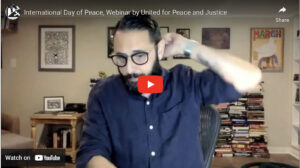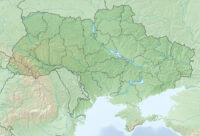by Terry Kay Rockefeller, founding member of September 11th Families for Peaceful Tomorrows
September 11th Families for Peaceful Tomorrows’ response to the events in Afghanistan, barely two weeks old, calling for “an immediate and continuing ceasefire and for all parties to the war in Afghanistan to work for a just and sustainable peace” and for “action to evacuate all who are at risk in Afghanistan and seeking to leave,” now seems wildly optimistic. Peaceful Tomorrows organized in opposition to war in Afghanistan, in 2002, calling on the U.S. government and public, even in the face of our family members’ murders in the 9/11 attacks to resist revenge and oppose a military response.
Afghanistan
As the situation in Afghanistan continues to unfold, Peaceful Tomorrows members reaffirm our founding mission and goals — most importantly, to develop and advocate “nonviolent options and actions in the pursuit of justice [in order] to break the cycles of violence engendered by war and terrorism.” Events in Afghanistan demand our horror and grief, but not our shock or surprise. The collapse of the Afghan government and its armed forces was forecast in the similar 2014 collapse of the Iraqi armed forces — another military, trained and supplied by the U.S. following the Bush Administration’s misguided invasion.
As Dr. Martin Luther King, Jr. reflected concerning the war in Vietnam, “wars are poor chisels for carving out peaceful tomorrows.” And again our nation must ask: have we learned this lesson yet?
The Larger War on Terror
The U.S. public and the world need and deserve an explanation of how 9/11 led to two wars; the deaths of over 7,000 U.S. service members, with another 30,000 lost to suicide; more than 335,000 civilians killed; an untold number of additional civilian deaths resulting from lethal drone strikes inside countries where the U.S. is not at war; indefinite detention of Muslim men at Guantanamo; the failure of the 9/11 military commission to present evidence in or even begin a trial for the crimes of 9/11; and trillions of American tax dollars spent on these appalling outcomes.
Wars waged by the United States since 9/11 have destroyed hundreds of thousands of lives—most significantly Muslim, Black, and Brown civilians in other lands — fueling massive human displacement and producing an unprecedented refugee crisis. These wars have diverted resources from more effective approaches and strategies; established dangerous precedents for other nations; prevented significant efforts at international cooperation; and shredded our nation’s reputation on human rights. If there is to be a true end to the War on Terror, peace and anti-war activists must work to prevent the continuation of militarized counterterrorism efforts around the globe, including airstrikes on Somalia to counter the terrorist group al-Shabaab, and efforts to target groups elsewhere is Africa, in Syria and in Indonesia — all too likely if the 2001 AUMF (Authorization for Use of Military Force), which names no specific enemy, is not speedily repealed.
At home we have paid a high price in terms of threats to civil liberties, human rights, and lives, especially the lives of America’s Black and Brown citizens and of refugees and asylum seekers. Along with prisons on our borders and the militarization of policing, we have seen targeting of people based on their religion and national origin, warrantless surveillance, and discriminatory watch lists.
Indeed, the War on Terror has metastasized into a collection of lawless, violent and deeply dangerous practices including: covert CIA activities that go unscrutinized by the public or our elected officials; torture; over-classification of information about our government — not to protect national security but to hide the facts of that torture; and the undermining of our Constitution and the rule of law. This entire war-based, legal and policy architecture must be dismantled, otherwise bringing U.S. troops home from Afghanistan and Iraq will change little.
Lack of Justice for the Crimes of 9/11
As the 20th anniversary of the 9/11 attacks looms, Peaceful Tomorrows’ members now confront a profound absence of justice on two fronts. The Congressionally created military commissions at Guantanamo have absolutely failed to bring those responsible for the September 11, 2001 attacks to justice. Members of Peaceful Tomorrows have, for nine years, watched the 9/11 military commission at Guantanamo stumble along, and at times grind to a halt, because of over-classification of discovery material concerning the torture of the five men accused of planning the 9/11 attacks.
Indeed, on September 11, 2021 the pre-trial hearings in the 9/11 case will likely focus on examining the credentials of a new — the eighth — judge in the proceedings. Should he be approved, he will need to review more than nine years’ worth (or 33,100 pages) of court transcripts, over 800 former legal motions, and then issue decisions on the more than 100 motions that are unresolved, along with any new motions to come. Then at the end of September, the Chief Prosecutor in the case, General Mark Martins, will retire and need to be replaced. All this before jurors can be seated and a trial can begin. Perhaps it should come as no surprise that Benjamin B. Ferencz, the last living Nuremberg prosecutor, has called the proceedings “suspect in the eyes of much of the world” and Guantanamo “synonymous with prisoner abuse and justice delayed, if not entirely denied.”
Lack of Accountability for U.S. Lawlessness
At the same time no one has been held accountable for our nation’s lawless and shameful program of Rendition, Detention and Interrogation, infamous for its euphemistically titled “enhanced-interrogation,” which is now recognized worldwide as torture. That is why, on August 20, Peaceful Tomorrows submitted an amicus brief to the Supreme Court of the United States in support of the Respondents in United States of America v. Zayn al-Abidin Muhammad Husayn, aka Abu Zubaydah, et al. — the first victim of CIA waterboarding. The narrow question to be answered by the Supreme Court is whether or not courts have the ability to separate classified from non-classified evidence in order to allow a case to proceed. The broader issues in the case involve overreliance on the state secrets privilege, and the courts’ failure to challenge unquestioned dependence on government agencies to accurately classify information to protect valid national security concerns, rather than to withhold information to avoid national embarrassment.
Is it possible for the U.S. to make truth, transparency, and accountability central to a national policy advancing human security worldwide? The jury is out!



